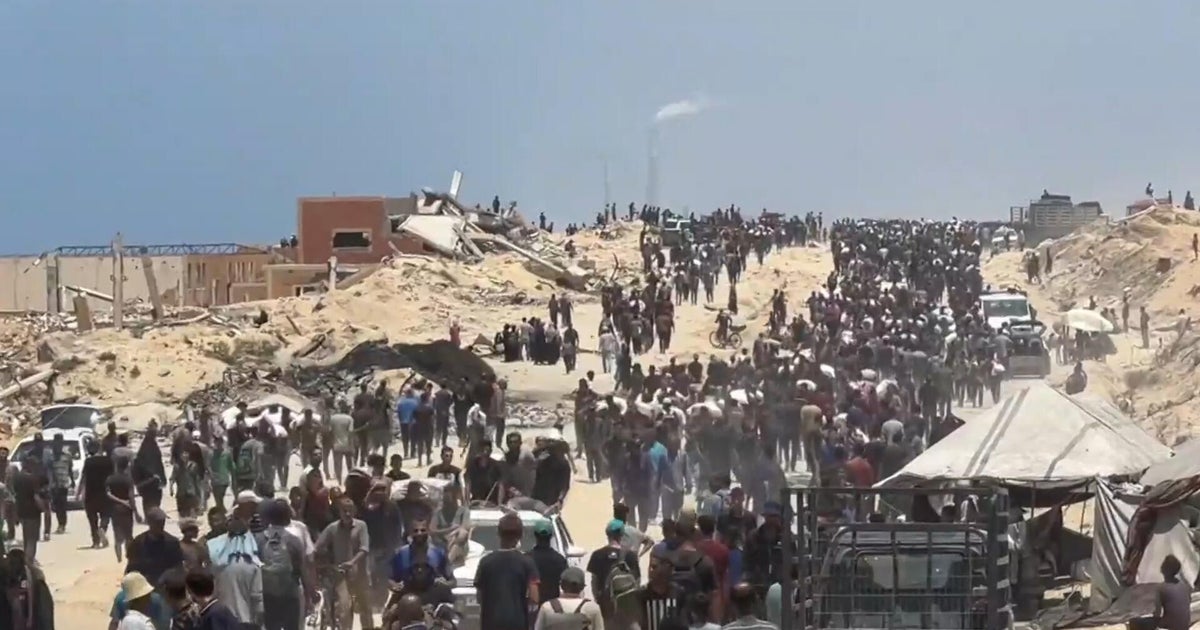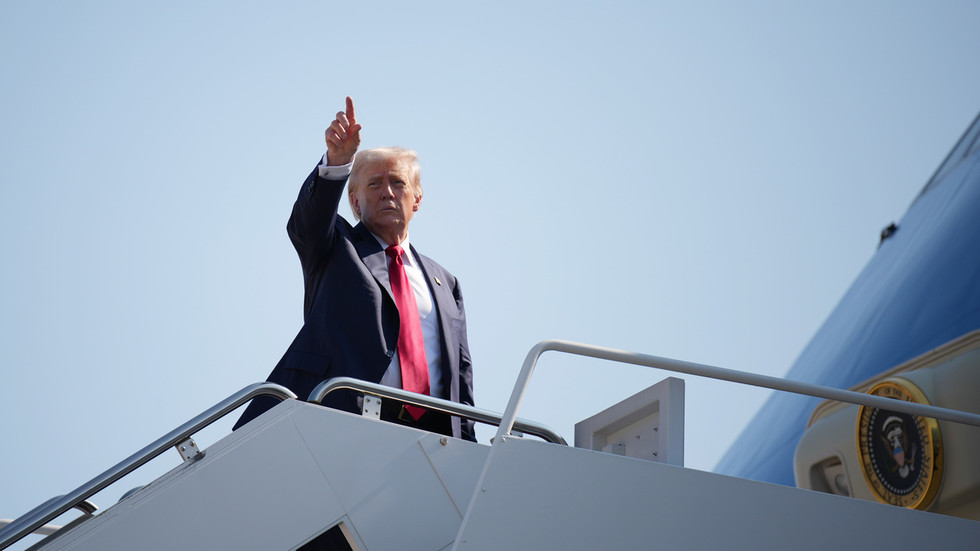There is much at stake when representatives from Germany, France and the United Kingdom meet their counterparts from Iran in Istanbul on Friday to negotiate the future of Iran's nuclear program. If the talks fail, Iran risks a new wave of sanctions.
Questions remain about the technical status of Iran's nuclear program after the attacks by Israel and the US on Iranian nuclear facilities in June. Or whether Iran can continue its program at all.
The limited information available does not appear to support claims by US President Donald Trump that Iran's nuclear facilities and nuclear program have been "totally obliterated," said Hamidreza Azizi, an Iran expert at the German Institute for International and Security Affairs (SWP). In his view, Iran would likely be able to resume its enrichment program to a certain extent in the short to medium term. He estimates that the country still has much of the highly enriched uranium it stockpiled over the past few years.
 A satellite image shows craters at Iran's Fordo nuclear facility after it was bombed by the US on June 24, 2025Image: Maxar Technologies/AFP
A satellite image shows craters at Iran's Fordo nuclear facility after it was bombed by the US on June 24, 2025Image: Maxar Technologies/AFPUncertainty about the status of enrichment technology
"Iran has not been deprived of its ability to enrich uranium," Azizi told DW. "So far, there has been no indication that Iran has actively taken steps to restart its program, but such a move would be more a matter of political decision-making, as well as military and security considerations, rather than technical capability."
Michael Brzoska, a political scientist at the Institute for Peace Research and Security Policy at the University of Hamburg, took a slightly different stance. He said it is likely to have become technically much more difficult for Iran to continnue enriching the uranium that is still available to a level suitable to make nuclear weapons.
The centrifuges required for enrichment have probably been damaged to such an extent that they can no longer be used, Brzoska said. "Although it cannot be ruled out that there could be hidden centrifuges in other locations, there is currently no information on this."
What messages are coming out of Tehran?
In order to exert pressure on Iran, Germany, France and the UK agreed with the US in mid-July this year to set Iran a deadline for reaching a nuclear agreement. This expires at the end of August. If no agreement is reached by then, the European partners plan to automatically reinstate previous UN sanctions against Tehran.
How independent Chinese oil refiners defy US Iran sanctions
It is entirely possible that the Iranian leadership is reconsidering its current strategy, Brzoska believes. Iran has repeatedly denied that it wants to use its nuclear program for military purposes. "But its behavior, especially the high-level enrichment of uranium, has brought it ever closer to this possibility," the expert pointed out. "And it has thus sparked fear among other states."
Iran is currently sending out "mixed signals," Azizi told DW, explaining that Iranian officials, including the president and foreign minister, continue to insist that Iran remains open to diplomatic engagement. At the same time, he sees no indication that Iran is willing to soften its positions on other contentious issues, such as domestic uranium enrichment or its support for non-state actors in the region.
"The leadership seems to be trying to buy time and avoid a renewed escalation until they determine how to address the various problems at hand," Azizi said.
The US goes it alone with own sanctions
However, Iran's time is limited due to the end-of-August deadline jointly set by Germany, France, the UK and the US. After this date, the UN sanctions, which were lifted in 2016 as part of the Joint Comprehensive Plan of Action (JCPOA), better known as the nuclear agreement, could once again be imposed.
Iran halts cooperation with UN nuclear watchdog
The agreement contains a mechanism known as the "snapback," which entitles each of the states the signed at the time — the US, the UK, France, China, Russia, Germany and the EU — to launch a procedure that would automatically lead to the reintroduction of all UN sanctions against Iran after 30 days.
The US withdrew from the agreement in 2018, under Trump's first administration, so it cannot initiate this mechanism. However, talks in mid-July show that the three European states have been coordinating closely with Washington.
The US, meanwhile, has imposed its own sanctions against Iran. These target specific sectors of the economy, such as oil exports and banking transactions, and also include sanctions against third countries and companies that do business with Iran.
Is there shared interest in reaching an agreement?
In this respect, the outcome of the upcoming talks is highly important for Iran, said Brzoska. "Sanctions imposed by the US will ultimately be more important from an Iranian perspective. However, the snapback mechanism is likely to prompt a whole series of states to impose economic restrictions on Iran."
 Protracted negotiations: Group photo of the foreign ministers after agreement at the nuclear talks with Iran in Vienna 2015Image: Herbert Neubauer/APA/picturedesk.com/picture alliance
Protracted negotiations: Group photo of the foreign ministers after agreement at the nuclear talks with Iran in Vienna 2015Image: Herbert Neubauer/APA/picturedesk.com/picture allianceThese restrictions would affect oil exports, for example, as well as the transfer of so-called dual-use technologies, that is, technology that can also be used for military purposes. "Iran is therefore likely to work towards ensuring that the Europeans do not reapply this mechanism," Brzoska said.
Beyond the possibility of not activating the snapback agreement, however, the three European states have no other incentives, or carrots, to offer Iran, said Azizi. This could make reaching an agreement more difficult, he believes. "The best we can realistically expect from the upcoming talks is that both sides might agree to extend the deadline for triggering the snapback mechanism, allowing more time for diplomacy and a potential diplomatic resolution."
The article was originally written in German.

 1 day ago
4
1 day ago
4









